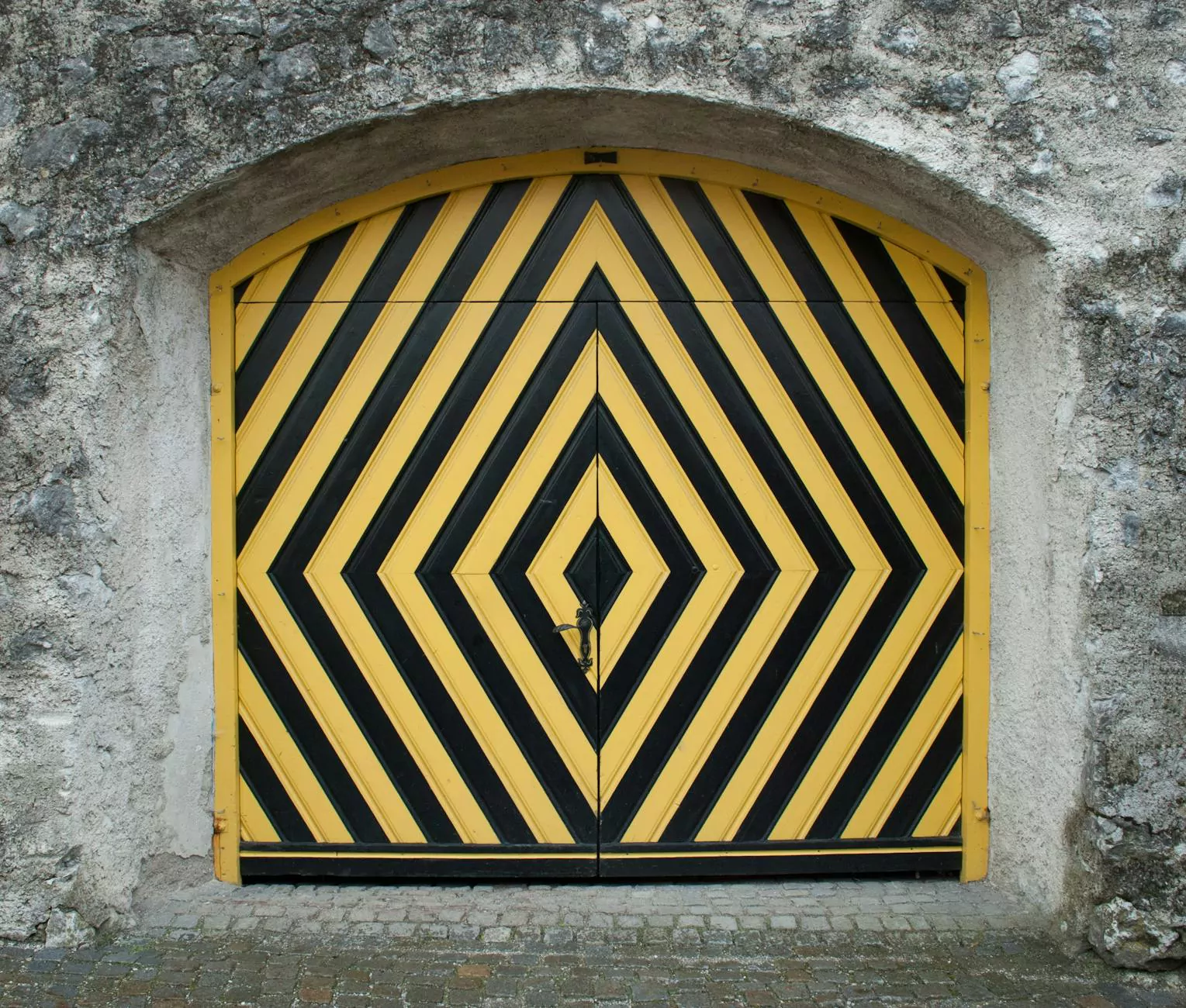Noisy Garage Door: Causes and Solutions
Clopay Door Information
Introduction
Welcome to Xpress Garage Door's comprehensive guide on noisy garage doors. If you're tired of the irritating grinding, squeaking, or rattling sounds produced by your garage door, you've come to the right place. In this article, we'll explore the various causes behind a noisy garage door and provide effective solutions to help you regain peace and quiet.
Common Causes of Noisy Garage Doors
A noisy garage door can stem from several factors. Understanding the root causes is essential in determining the appropriate solution for your specific situation. Let's take a closer look at the most common culprits of a noisy garage door:
1. Insufficient Lubrication
One of the primary causes of a noisy garage door is insufficient lubrication. Over time, the metal components of your garage door can become dry and worn, leading to increased friction and unwanted noise. Regular lubrication is crucial to maintaining a smooth and quiet operation. Apply a high-quality silicone-based lubricant to the hinges, rollers, springs, and tracks of your garage door to reduce friction and noise.
2. Worn Out Rollers
Rollers play a significant role in the smooth functioning of your garage door. If your rollers are worn out or damaged, they can produce loud noises as they move along the tracks. Inspect your rollers regularly and replace any worn or damaged ones with nylon rollers, which are quieter and provide better durability.
3. Loose Hardware
Over time, the constant vibrations and movements of a garage door can loosen its hardware, including nuts, bolts, and screws. Loose hardware can rattle and create unnecessary noise. Carefully inspect and tighten all the hardware components, ensuring a secure and stable door.
4. Malfunctioning Springs
Garage door springs are responsible for counterbalancing the weight of the door, making it easier to open and close. If your springs are worn, damaged, or improperly adjusted, they can generate loud noises when the door operates. It's vital to have a professional garage door technician inspect and replace any malfunctioning springs to ensure a quiet and safe operation.
5. Poorly Aligned Tracks
Misaligned tracks can cause a garage door to produce loud grinding or scraping sounds. Check the alignment of your door's tracks and make any necessary adjustments. Ensure the tracks are properly lubricated and free from debris to avoid unnecessary noise.
6. Deteriorated Weatherstripping
Weatherstripping helps seal the gaps around your garage door, keeping out external elements and reducing noise transmission. If your weatherstripping is worn or damaged, it may fail to provide an effective barrier against noise. Replace worn weatherstripping with a suitable replacement to maintain a quieter and more energy-efficient garage.
Effective Solutions for a Quiet Garage Door
Now that we've identified the common causes of a noisy garage door, let's explore some effective solutions to silence those irritating sounds:
1. Regular Maintenance
Routine maintenance is key to preventing and resolving garage door noise issues. Schedule regular inspections and maintenance with a professional garage door technician. They will identify and address any potential problems before they escalate, ensuring optimal performance and minimal noise.
2. Lubrication
As mentioned earlier, lubricating your garage door's moving parts is critical for reducing noise. Remember to use a high-quality silicone-based lubricant and apply it to all relevant components, including hinges, rollers, springs, and tracks. Lubrication should be performed at least twice a year or as recommended by the manufacturer.
3. Roller Replacement
If you have metal rollers, consider upgrading to nylon rollers for a quieter operation. Nylon rollers are smoother, produce less noise, and offer enhanced durability. Consult a professional garage door technician to help you choose the right size and type of rollers for your specific garage door model.
4. Tightening Hardware
Regularly inspect and tighten all the hardware components of your garage door. Use a wrench or socket set to ensure that nuts, bolts, and screws are secure. Be cautious not to overtighten, as this can cause additional damage. If you're unsure or uncomfortable performing this task, it's best to seek professional assistance.
5. Spring Replacement
Garage door springs are under high tension and can be dangerous to handle without proper knowledge and tools. If your garage door springs are worn, damaged, or causing excessive noise, contact a professional technician to safely replace them. A well-functioning spring system will contribute to a quieter and smoother door operation.
6. Track Alignment
Inspect the alignment of your garage door tracks and make the necessary adjustments. Use a level to ensure they are straight and parallel. Tighten any loose bolts or screws that secure the tracks to the walls. Additionally, clear any debris or obstructions that may hinder the door's movement along the tracks.
7. Weatherstripping Replacement
Replace deteriorated weatherstripping with a suitable replacement to maintain an effective seal against noise. Measure the dimensions of your garage door to ensure a proper fit. Follow the manufacturer's instructions on how to install the new weatherstripping accurately.
Conclusion
Xpress Garage Door hopes that this guide has provided valuable insights into the causes and solutions for a noisy garage door. By following the tips and recommendations outlined here, you can regain a quiet and smooth-operating garage door. Remember, routine maintenance and professional assistance can go a long way in keeping your garage door functioning optimally and minimizing noise-related issues.




